“Sometimes we just put the camera aside and listened,” says Maximilian Mann about the few times interaction with flood-affected community members took preference over taking photos. He’s a member of the DOCKS Collective, a team of five young German documentary photographers founded in 2018. The group documented the destruction caused by unusual rain and flooding across some parts of Germany in July 2021. They also photographed the spirit of the survivors and helpers who came together to reconstruct the affected communities.
Subscribers get some sweet perks and are automatically entered into contests! Download our app for iOS, iPad, and Android and get no banner ads for $24.99/year.
The devastation caused by flooding can be hard to gauge unless you see it for yourself. While I had seen flood-affected areas in the past, the closest I ever was from one was about 75 miles from Dubai, in a city called Fujairah. Unusually high rainfall for the summer month of August wreaked havoc across various parts of this city. Decades worth of rain poured down in less than 24 hours, causing water levels to rise to dangerous heights. People from across the country rallied to help restore normality, hand in hand with government authorities. The same scenario happened in the Rhineland-Palatinate and North Rhine-Westphalia areas of Germany, but with devastation on a larger scale.
DOCKS Collective’s coverage of the impact of this flood and the ongoing efforts to rebuild affected people’s lives won them a shortlist at the 2022 Leica Oscar Barnack Awards. The group has five members, and Maximilian Mann spent some time with us, sharing how the members came together for this project. The other team members are Aliona Kardash, Ingmar Björn Nolting, Arne Piepke, and Fabian Ritter.
The Essential Photo Gear Used By DOCKS Collective
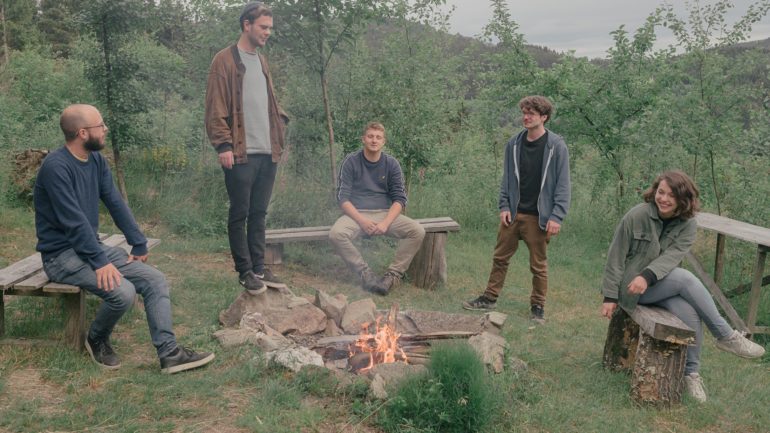
Maximilian told us:
The Phoblographer: Hi Maximilian. Please tell us about yourself and how you and the other DOCKS team members got into photography.
(Maximilian, on behalf of) DOCKS Collective: We all have different backgrounds with our starting points in photography, but we have all been interested in photography since our youth. And then, we met each other while studying photography at the Dortmund University of Applied Sciences and Arts together, understanding that we have the same ideas about how topics should be approached and that we share values and moral standards about documentary photography.
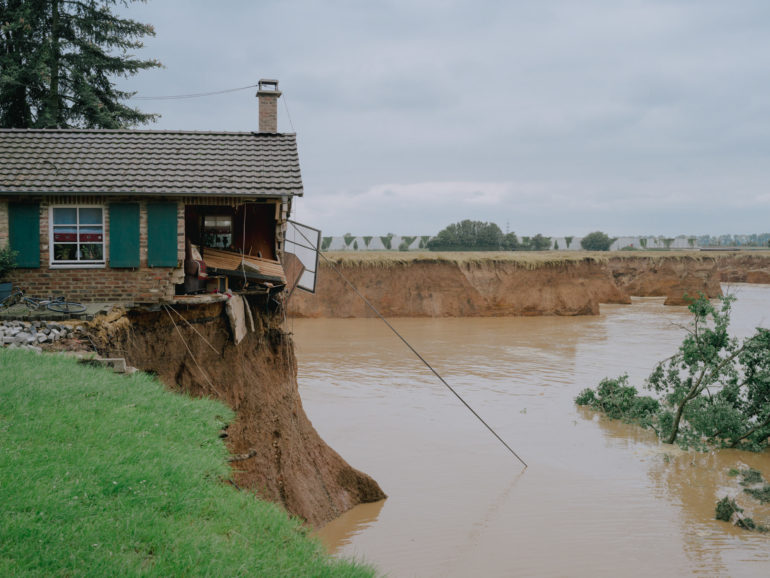
The Phoblographer: Was the 2021 flood the first one you ever experienced? What were the initial few days like in terms of the realization of the damage?
DOCKS Collective: We remember the news we saw as children about the Elbe flood in 2002, which claimed at least 45 lives and caused damage totaling about 15 billion euros. But the flood in Western Germany last year was the first flood of this magnitude in Central Europe that we have experienced as photographers and then one that was directly accessible within a really short car ride. From the number of people killed and infrastructure and houses destroyed, many are talking about this as the flood of the century, which unfortunately greatly exceeds the Elbe flood of 2002.
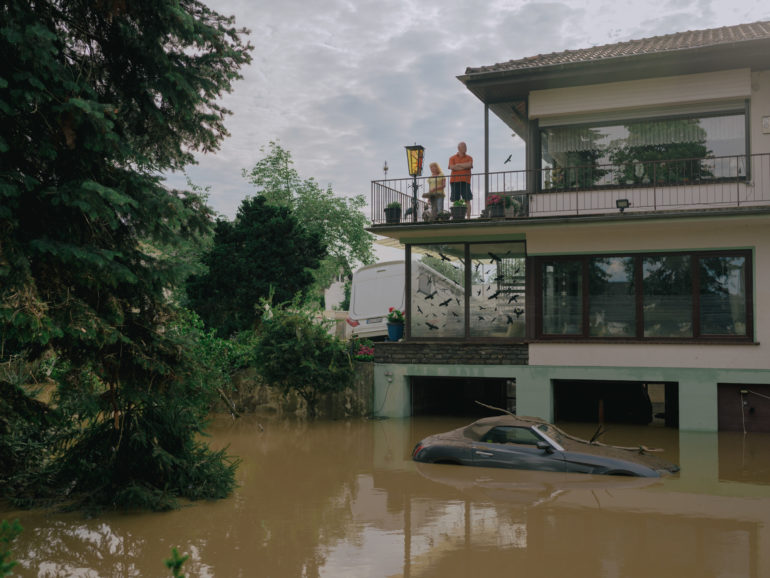
The Phoblographer: At what point did DOCKS Collective come together and decide to start documenting this natural disaster? Who came up with the idea?
DOCKS Collective: We recognized the extreme amount of rain because some of us travelled from France to Germany that day; it did not stop raining the whole travel. At first, highways were closed because of the amount of rain on the 14th of July 2021. We all then quickly understood that something historic was happening when the first media reports came in and the situations we saw with our own eyes. At some point, we stood simultaneously in a destroyed scenery of a nearby city and formed teams within the collective to cover everything as best as possible.
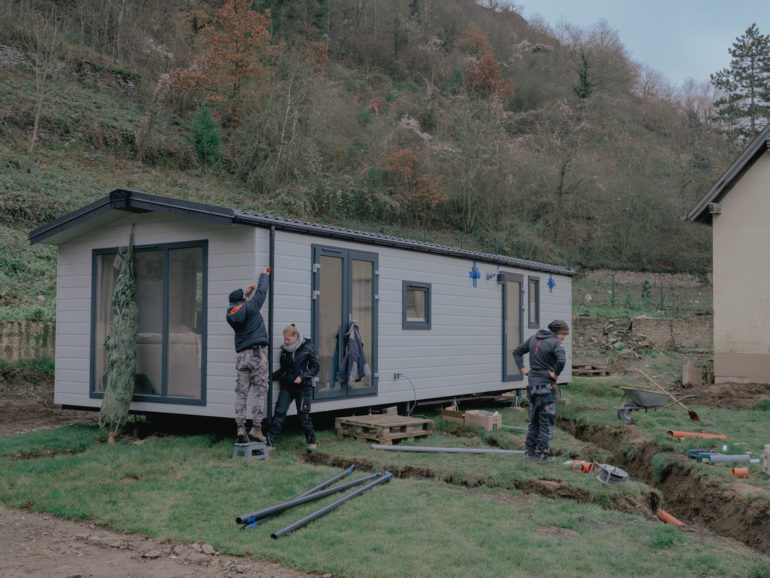
The Phoblographer: Are some communities still reeling from the devastation of the flood?
DOCKS Collective: The dimensions of the destruction are hard to explain to someone who has not been to the affected areas, even with good video or photography documentation. We are not sure if every village will recover and establish itself again as a touristic destination, as many villages were famous wine and wandering destinations before.
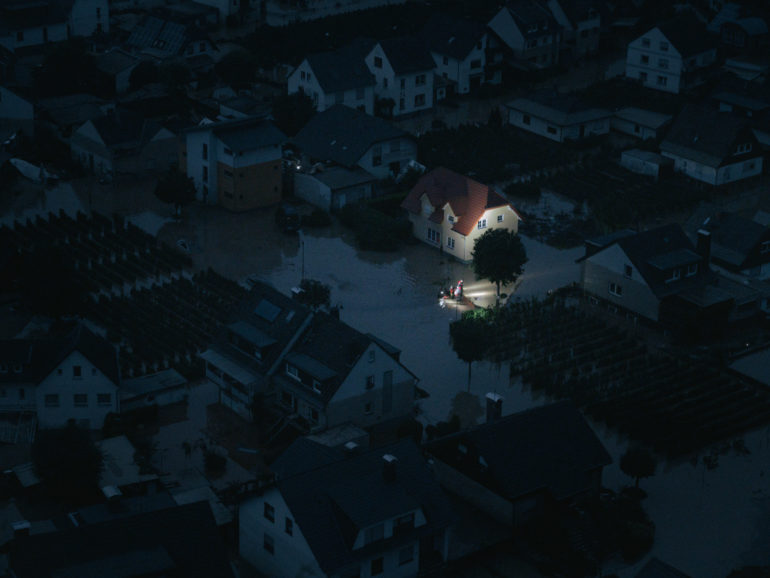
The Phoblographer: The flood itself could be considered a weather anomaly, but what would you say is the reason it’s taking so long to recover?
DOCKS Collective: The first warnings were not taken seriously by local authorities; at some point, it was just too late for the protection of civilians. The recovery also took a long time because of typical German bureaucracy, even though there were so many volunteers helping the affected regions very much.
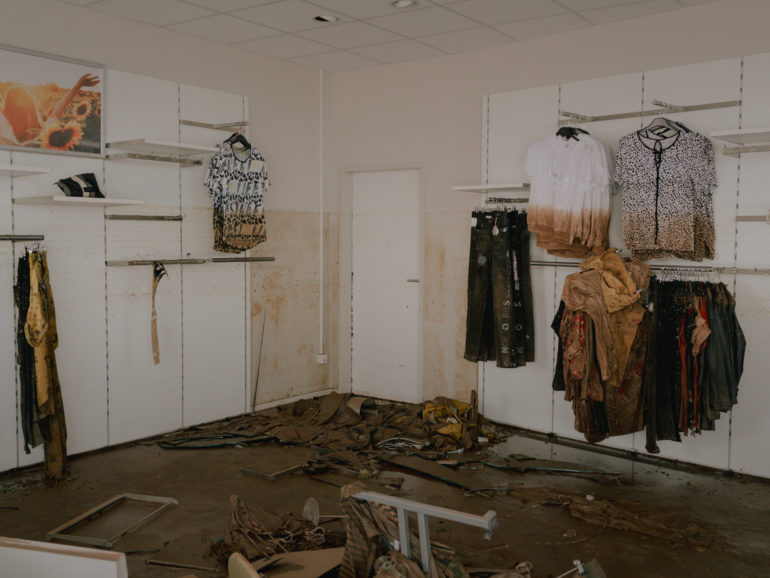
The Phoblographer: What’s being done to ensure future floods won’t have such a long-term impact on communities?
DOCKS Collective: First steps are taken, but we don’t recognize really big changes from the political side. There are somewhat stricter development plans for the waterfront areas, but also many grey areas and borderline cases. The local population is now way more aware of flooding risks and what dangers the future might bring for them.
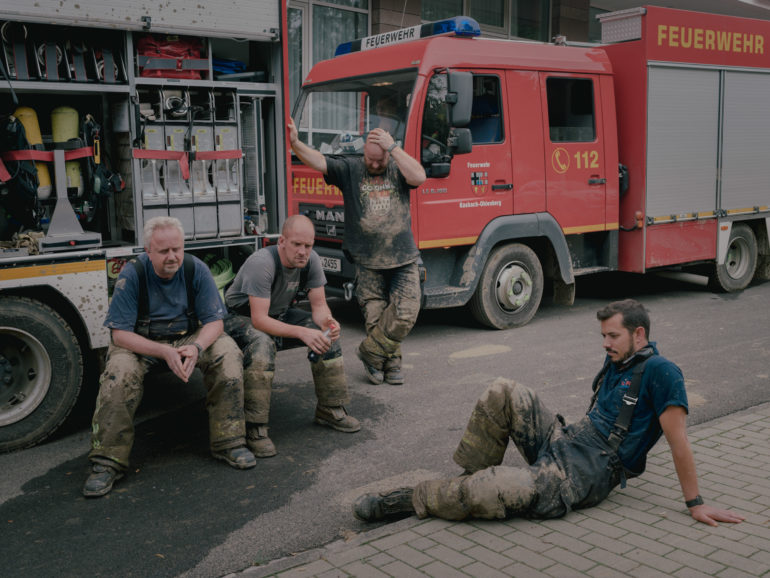
The Phoblographer: Reconstruction of these places could take a long time. how are the surrounding communities coming together to support those more impacted by this?
DOCKS Collective: We saw this in a very simple way in the first weeks after the flood: the youth from the surrounding villages, who were hardly or only slightly affected, came for weeks to help. There was also a lot of solidarity with people who had lost their homes. Many families from the surrounding villages and towns took in people who had lost almost everything.
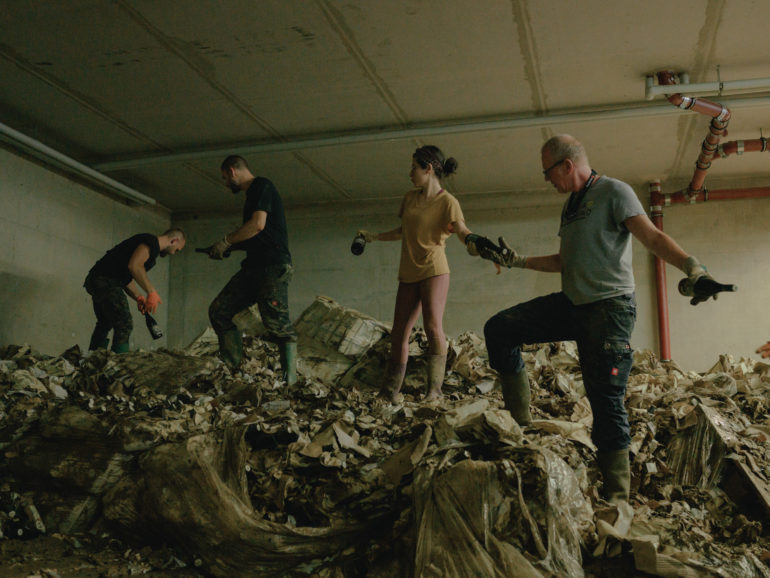
What we really like [about the Nikon Z cameras] is the great light sensitivity when it comes to higher isos , as we don’t use artificial light for most of our projects. The camera body and lenses also have a very low weight for the quality they deliver, which can help to walk some extra miles in surroundings with low or destroyed infrastructure, like the flooded areas we worked during the last year.
Maximilian Mann
The Phoblographer: Tell us some of the stories of the people you photographed. Which ones struck a chord with you and your team?
DOCKS Collective: It is very difficult to highlight individual fates here, but the stories about the loss of family members or completely destroyed existences moved us the most. Sometimes we just put the camera aside and listened.
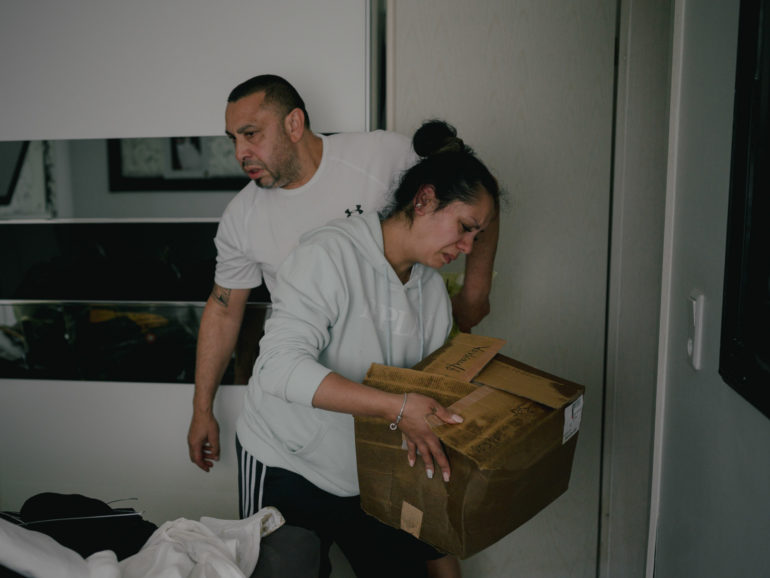
The Phoblographer: How are those most impacted by this keeping their spirits up?
DOCKS Collective: There is great solidarity within the communities and still ongoing help from volunteers, who are even coming from far away places, months after the disaster. For sure, for some elders it’s hard to organise a rebuild, but in most cases, someone younger jumps in to help. We also recognized the first village celebrations taking place after the flood and people trying to enjoy the neighborhood again.
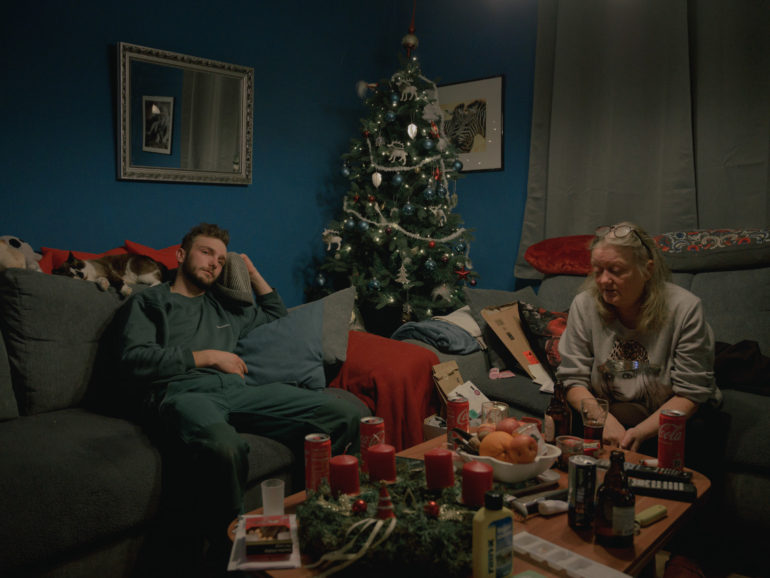
All images by DOCKS Collective. Used with permission. Check out their website and Instagram page to see more of their work. Want to be featured? Click here to see how.


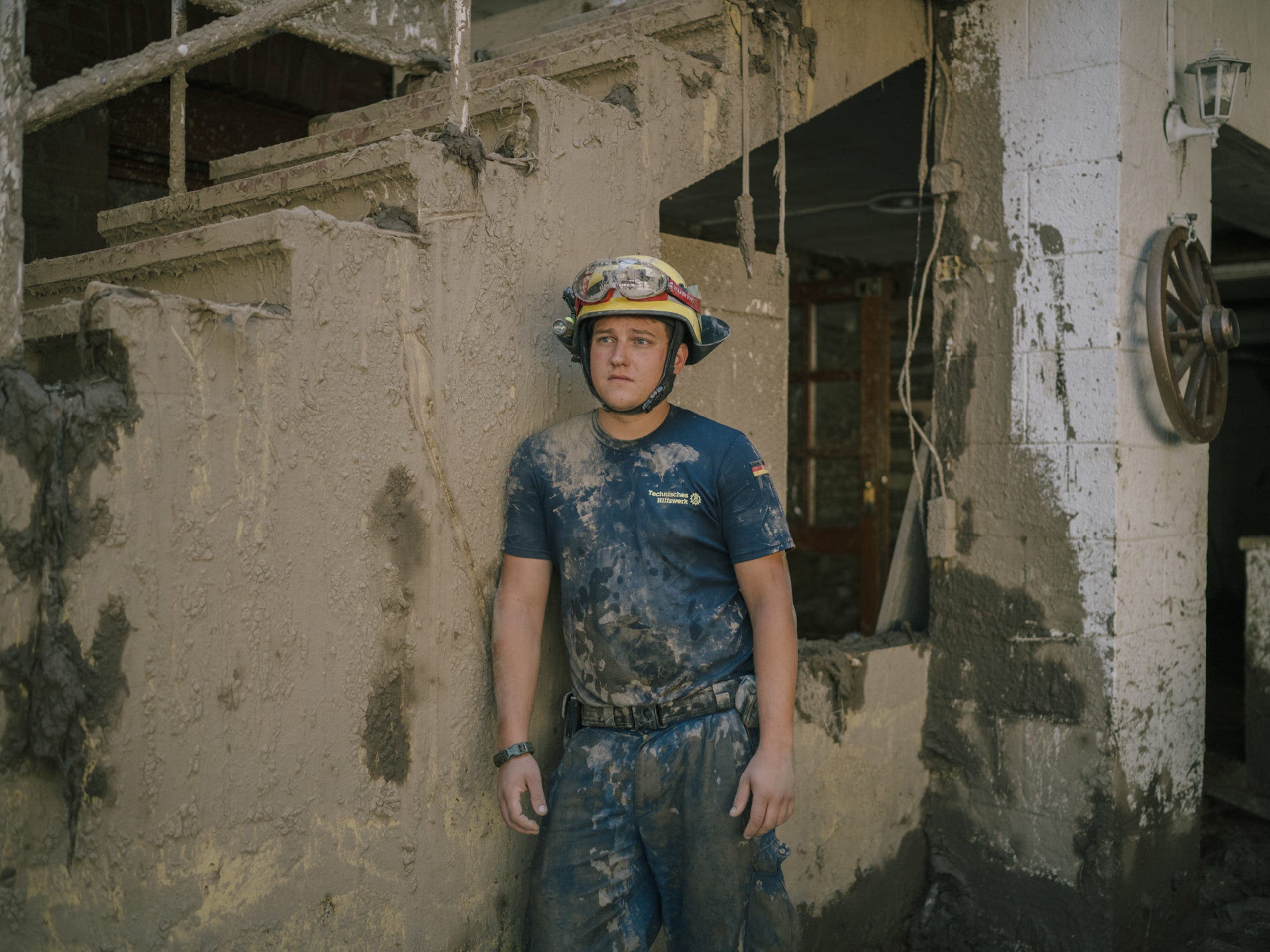
Leave a Reply